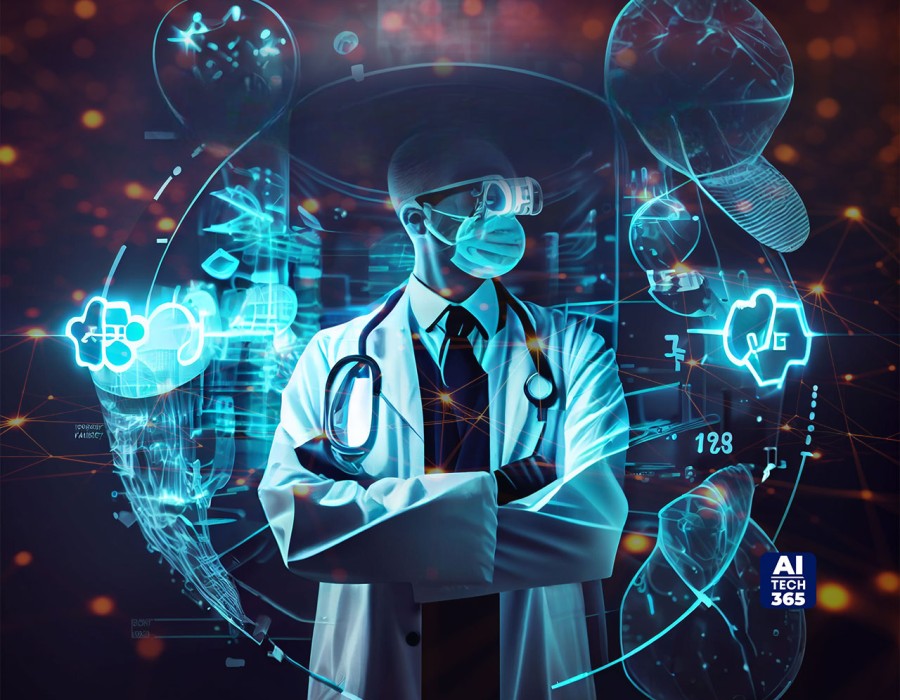Artificial Intelligence (AI) continues to reshape industries across the globe, and healthcare is no exception. By 2025, AI’s market value is expected to reach an astounding $190 billion, significantly contributing $15.7 trillion to the global GDP. One area where AI is making a profound impact is precision medicine, transforming how we approach healthcare by personalizing treatments and diagnoses. Here’s a look at five key trends shaping AI in precision medicine today.
How AI is Revolutionizing Precision Medicine
Precision medicine is all about delivering tailored healthcare by factoring in individual genetic, environmental, and lifestyle differences. AI plays a pivotal role in this field, assisting with everything from disease prevention to personalized treatments. Here’s how AI is enhancing precision medicine:
Disease Prevention
AI leverages data from sources like Electronic Health Records (EHRs) to identify risk factors and develop predictive models. This enables healthcare providers to spot individuals at high risk of developing certain conditions, allowing for early interventions and preventive measures.
Personalized Diagnoses
AI is revolutionizing diagnostics by increasing accuracy in various medical fields, such as radiology. For instance, AI algorithms can detect early-stage abnormalities, like pre-cancerous lesions, enabling timely diagnosis and treatment. These AI systems also analyze patient-specific data to craft customized diagnostic approaches.
Tailored Treatment Plans
One of AI’s greatest contributions to healthcare is in the area of personalized treatment. AI analyzes large datasets, such as genetic profiles, to determine optimal drug combinations. In oncology, this is particularly valuable, allowing doctors to create treatment plans based on a patient’s unique genetic makeup.
Data Mining and Analysis
The healthcare sector generates massive amounts of data, much of it unstructured. AI-driven systems organize and interpret this data, pulling valuable insights from medical records, lab results, and treatment outcomes. This analysis enhances clinical decision-making and overall patient care.
Advances in Research and Development
AI accelerates the pace of innovation in medical research. It helps researchers sift through complex datasets to find patterns and breakthroughs. AI is instrumental in drug development, repurposing existing drugs, and identifying new pharmacogenomic targets, all of which push the boundaries of modern medicine.
Overcoming the Challenges in AI-Powered Precision Medicine
While AI offers enormous potential, it also presents challenges that need addressing. One significant issue is bias and fairness. Biased data inputs can result in discriminatory AI outputs, especially in healthcare. Efforts are underway to mitigate this through diverse data collection and the development of fairness tools, but there’s still work to be done to ensure AI decisions are equitable.
Socio-environmental factors also pose challenges. AI models often perform inconsistently across different clinical settings due to environmental variations. Validating these models across diverse clinical scenarios and incorporating user feedback is essential for improving accuracy and reliability.
Data privacy and security are paramount concerns, given the sensitive nature of healthcare information. Safeguarding health data requires not just technological advancements, but also robust regulatory frameworks and collaborations to ensure data is securely stored and managed.
The Trust Dilemma: Can AI in Precision Medicine Lead to Misdiagnoses?
Despite its potential, skepticism around AI’s role in healthcare persists. A key issue is trust—both among clinicians and patients. With AI in precision medicine expected to generate $17.1 billion by 2032, concerns about accountability and ethical use are growing. Are these AI systems trustworthy?
To address these issues, collaborations between AI developers and clinicians are refining models to ensure they learn from accurate, unbiased data. Additionally, the focus is on creating transparent AI systems that explain their predictions, making them more reliable for both doctors and patients.
The Future of AI and Precision Medicine: A Collaborative Approach
The ultimate goal of AI in healthcare is not to replace human clinicians, but to work alongside them. By enhancing human cognitive abilities and decision-making, AI empowers healthcare professionals to deliver better, more personalized care. This collaborative relationship between AI and humans will propel medical innovation, making healthcare more effective and accessible for everyone.
Conclusion
AI is undeniably transforming precision medicine, enabling personalized treatments, improving diagnostic accuracy, and driving innovations in healthcare. As AI technologies continue to evolve, they will play an even more crucial role in disease prevention, diagnosis, and treatment, ensuring that healthcare becomes more personalized, effective, and accessible for individuals worldwide.





Comments